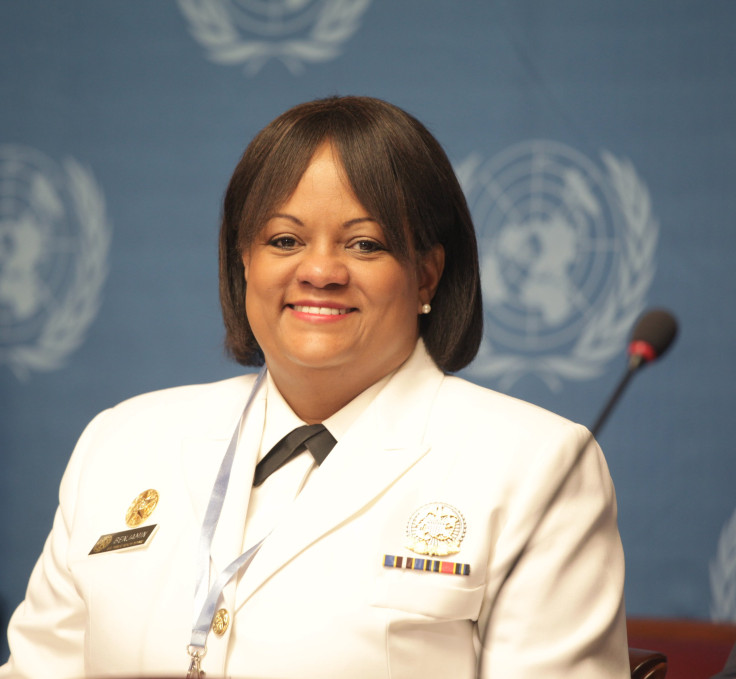Surgeon General Regina Benjamin Announces Her Leave: Who Will Take On The Challenge To Lead A Healthier Nation?

After four years as the Surgeon General of the United States, Regina Benjamin announced last night that she will step down from her position. Benjamin, who was appointed to the position by President Obama, has presided over 6,500 uniformed public health officers around the world, and as America's Doctor, has been responsible for advising the public with the best scientific information available to improve the lives and health of the nation. The job carries with it an immense undertaking, especially during the obesity epidemic — the greatest health crisis since cigarettes.
"I leave next month confident we created a more healthy & fit nation," Benjamin said in response to her e-mail-announced leave to staff.
The 56-year-old Alabama native is not expected to retire from politics just yet. Benjamin's name has emerged as a possible candidate for Congresswoman in Alabama, and as a family medicine physician and MBA degree-holder, Benjamin should be able to provide the state with valuable leadership.
But who will take on the role as America's next surgeon general? Deputy Surgeon General Boris Lushniak will take on the interim position, as the selection for a new surgeon general goes underway.
The surgeon general is the head of the U.S. Public Health Service, and functions as a post for varying administrations to communicate important health messages to the public. The general surgeon carries out a four-year term of office and reports to the Assistant Secretary for Health, currently Dr. Howard K. Koh, who serves as the principal advisor to the Secretary of Health and Human Services, Kathleen Sebelius.
Acting surgeon general Lushniak has previously served at the Centers for Disease Control and Prevention as well as the Food and Drug Administration. Most of his work has centered around counterterrorism and disaster response.
The office must rely on research and support from the National Institutes of Health and the Centers for Disease Control and Prevention. As a surgeon general, primary duties are to protect and advance the health of the nation through education, advocacy, and promotional programs; articulate scientifically-based health policies and provide advice to the President and the Secretary of Health and Human Services; and promote special departmental health initiatives including tobacco, HIV prevention efforts, and other governmental and nongovernmental work.
Months before Benjamin was elected and took on the challenge to fulfill said duties, Sanjay Gupta, an American neurosurgeon and medical correspondent for the Health, Medical & Wellness unit at CNN, withdrew his name from potential candidacy for the surgeon general position. Could he be the 2013 to 2017 surgeon general, a position thick with responsibility for the health concerns rampant in America today?
As the country's top public health job, the search for the next surgeon general won't have a shortage of interested candidates.
When Gupta, the president's top choice, dropped out of candidacy, the chances of being appointed the position rose for Chicago neurosurgeon, Dr. Gail Rosseau. Although the White House hasn't announced its candidates yet, Rosseau could be a formidable opponent for anyone interested in the position. Rosseau, 52, is one of 300 female neaurosurgeons nationwide, and the chief of surgery at the Neurologic and Orthopedic Institute of Chicago.
When Benjamin was selected as surgeon general in 2009, she was highly scrutinized for being overweight. But as the first black woman to head a state medical society, she has been recognized by the MacArthur Foundation, where she and 24 others earned the "genius award" for their work and dedication as health care reformers.
"She has served as America's doctor since 2009 and has impacted the health and lives of Americans across the country. We are grateful for her leadership and service," Health and Human Services spokeswoman, Dori Salcido, said.



























